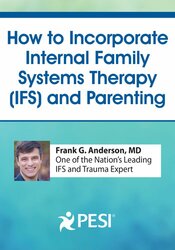All Parts Are Welcome: Redefining Parenting Dynamics with IFS Therapy

IFS emphasizes the importance of welcoming all parts—both in parents and their children. This means viewing challenging behaviors in children (e.g., tantrums, defiance, or withdrawal) as expressions of parts that are trying to meet underlying needs. Rather than punishing or suppressing these behaviors, IFS encourages parents to approach them with curiosity and compassion.
For instance, a child’s outburst might be a protective part shielding them from feelings of shame or fear. By focusing on the intention behind the behavior rather than its surface expression, parents can connect more deeply with their children and foster healthier emotional development.
Parenting, as viewed through the lens of IFS, is not about perfection. It’s about presence—showing up for our children and ourselves with curiosity, compassion, and a willingness to grow. By embracing this journey, parents can transform not only their relationships with their children but also their relationship with themselves.
For instance, a child’s outburst might be a protective part shielding them from feelings of shame or fear. By focusing on the intention behind the behavior rather than its surface expression, parents can connect more deeply with their children and foster healthier emotional development.
Preventing and Healing Wounds
IFS therapy offers a dual approach to parenting: prevention and healing.- Preventing Wounds: By addressing their own triggers and operating from a place of Self-energy, parents can avoid inadvertently wounding their children through harsh reactions or misaligned expectations.
- Healing Wounds: For children who have already experienced emotional wounds—whether from parental mistakes, external circumstances, or developmental challenges—IFS provides a framework for repair. Parents learn to take responsibility for their actions, model vulnerability through sincere apologies, and create space for their children’s feelings to be heard and validated.
Practical Tools for Everyday Parenting
IFS therapy is not just theoretical; it’s immensely practical. Here are some ways parents can incorporate its principles into daily life:- Use "A Part of Me" Language: Encourage both parents and children to identify their feelings as parts rather than their entire being. For example, saying, “A part of me feels angry” helps separate the emotion from the self, making it easier to address constructively.
- Pause and Regroup: When triggered, parents can practice stepping away to calm their internal system before re-engaging with their child. This ensures responses come from Self-energy rather than reactive parts.
- The Triggering Agreement: For co-parents, agree that the non-triggered parent will take over when one becomes reactive. This minimizes potential harm to the child and fosters a supportive partnership.
- Model Apologies: When parents lose their temper, they can repair the relationship by apologizing and taking responsibility for their behavior. This teaches children accountability and reinforces trust.
Parenting, as viewed through the lens of IFS, is not about perfection. It’s about presence—showing up for our children and ourselves with curiosity, compassion, and a willingness to grow. By embracing this journey, parents can transform not only their relationships with their children but also their relationship with themselves.
Digital Seminar:
How to Incorporate Internal Family Systems Therapy (IFS) and Parenting
How to Incorporate Internal Family Systems Therapy (IFS) and Parenting

Get to the real root of parenting challenges. Even when parents are at the top of their game, the most routine curveballs—quarreling siblings, a child’s public meltdown, or a phone call from a teacher—can trigger unresolved shame, guilt, anger or disconnection in parents. By applying the Internal Family Systems (IFS) approach, clinicians can help parents more fully understand and heal their own wounds that their children inevitably evoke and so much more.
Frank Anderson’s Internal Family Systems Trauma Treatment Program: A 4-Month Online Intensive

International trauma expert and IFS-senior lead trainer, Frank Anderson presents a step-by-step guide to trauma healing using the transformative IFS therapy model. Through in-depth experiential training sessions, real in-session videos, and ample skill demonstrations, you'll develop the skills and confidence you need to help your clients overcome even the most complex traumas.
PLUS, you’ll have exclusive access to 5 Live Consultation Calls with Frank where you will have even more learning opportunities including more demos, live practice, and Q+A. You will end this intensive online course prepared to integrate the Internal Family Systems trauma model with your current clinical models — so you can help your clients find hope, growth, resilience, and recovery.
PLUS, you’ll have exclusive access to 5 Live Consultation Calls with Frank where you will have even more learning opportunities including more demos, live practice, and Q+A. You will end this intensive online course prepared to integrate the Internal Family Systems trauma model with your current clinical models — so you can help your clients find hope, growth, resilience, and recovery.
Meet the Expert:
Frank Anderson, MD, completed his residency and was a clinical instructor in psychiatry at Harvard Medical School. He is both a psychiatrist and psychotherapist. He specializes in the treatment of trauma and dissociation and is passionate about teaching brain-based psychotherapy and integrating current neuroscience knowledge with the IFS model of therapy.
Learn more about his educational products, including upcoming live seminars, by clicking here.
Learn more about his educational products, including upcoming live seminars, by clicking here.



